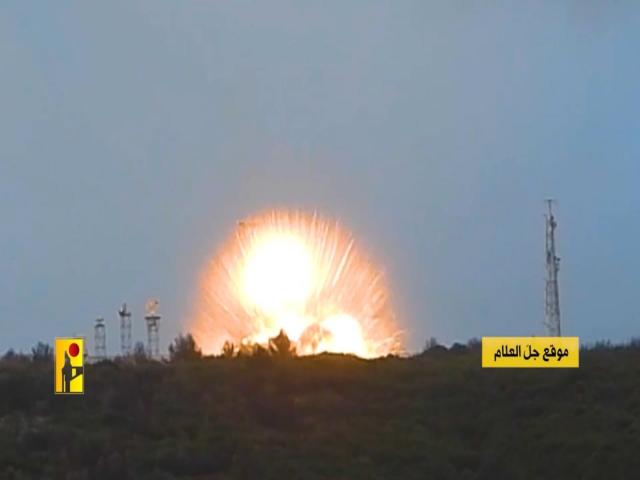In a strategic briefing given to the Israeli news daily "Israel Hayom" as reported by their journalist Shirit Avitan-Cohen," a top Israeli official detailed a plan focusing on the safety and normalization of life for residents in Israel's northern regions, following a pivotal operation in Rafah. The strategy outlines a shift towards ground operations in the north, a move described as crucial for the long-term stability of the area. This approach is designed to ensure that operations are not conducted simultaneously, reflecting a meticulously planned effort to secure the region.
The announcement follows intense conflict in northern Israel on Wednesday, with a careful narrative that acknowledges the situation's severity while avoiding precipitate steps towards a broader clash with Hezbollah. This acknowledgment of planned ground operations in Lebanon highlights Israel's proactive stance on security and its readiness to defend its citizens.
A majority of all political blocs and demographics believe that a war in Israel's north is inevitable.https://t.co/jSBHT86Acx
— Avraham Israeli Zionist 🇮🇱🇨🇦 (@IsraeliAvraham) March 26, 2024
Within Israel's security circles, there is some skepticism about the feasibility of these operations, especially given the perceived decline in support from the United States. This changing international backdrop is seen as a potential hindrance to the success of the Rafah operation.
Despite such concerns, Israel's leadership, including Prime Minister Benjamin Netanyahu, Defense Minister Yoav Gallant, and Minister Benny Gantz, strongly believes in the necessity of the Rafah operation and the dismantling of Hamas's military capabilities. The Rafah initiative is part of a broader strategy aiming for a prisoner exchange with Hamas, though challenges, including diminished American support and anticipated international pressure, have hampered progress.
Israel should go into Rafah tonight!
— Hillel Fuld (@HilzFuld) March 25, 2024
Not sure why Israel is taking Biden and this administration’s opinion into account after their shenanigans in the UN today.
Enough with the fake friendship. Biden has spoken. Israel should reciprocate and win this war, once and for all.
Navigating this complex geopolitical environment, Israeli officials remain committed to advancing their security objectives, undeterred by external pressures. Engagement from the White House, including discussions with Israeli National Security Advisor Tzachi Hanegbi and Minister Ron Dermer, indicates an understanding of the pivotal moment these operations represent, along with efforts to propose alternative strategies that might avoid extensive military action in Rafah.
See footage of our #amazing #brave #heroes of the #Israeli #Airforce as they undergo new training maneuvers to increase readiness for possible war scenarios in the north & elsewhere. #IAF #IDF #Israel #Israelfightsback #IDFHeroes #StandWithIDF #StandWithIsrael #Victory… pic.twitter.com/aQO29JsFkg
— Ora Levitt 🇮🇱 חיילת צה"ל 🇮🇱 עם ישראל חי (@IDFsoldiergirl) March 27, 2024
The ongoing dialogue between Israel and its international allies, especially the U.S., demonstrates a nuanced understanding of security and diplomatic relations. Israel is focused on communicating the necessity of ground operations, challenging outdated perceptions of military engagement and emphasizing strategic patience and preparation. With operations progressing towards Rafah, Israel's leadership underscores its dedication to safeguarding its citizens and maintaining territorial sovereignty, balancing the demands of international diplomacy with the imperatives of national security.


